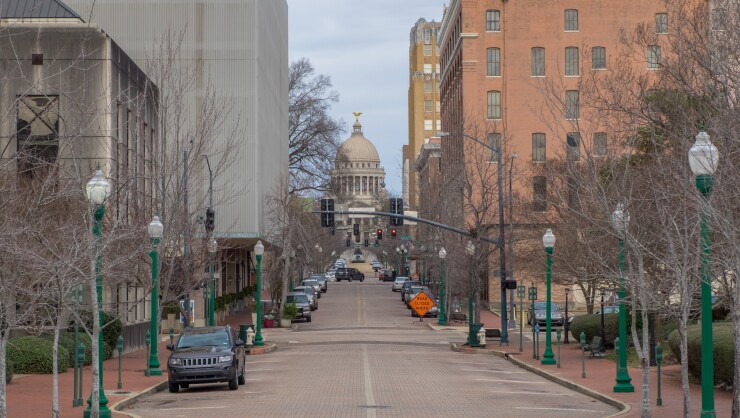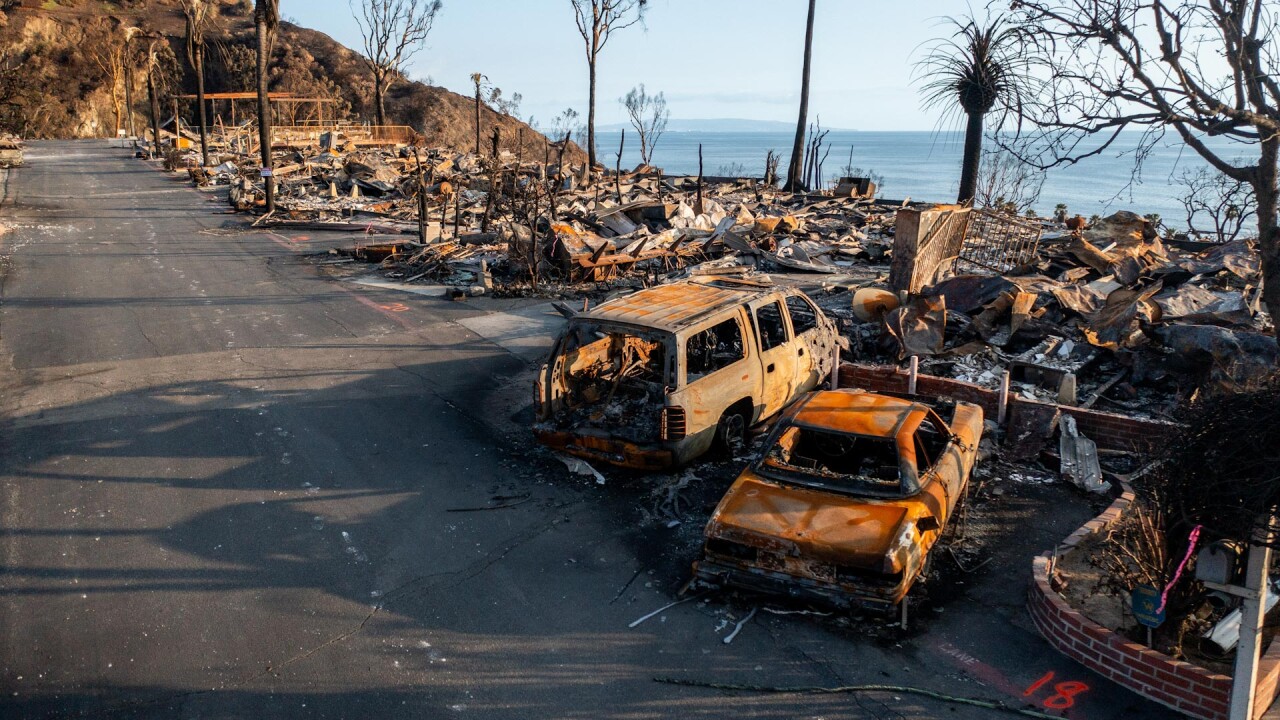Most of Jackson, Mississippi, is currently without running water after flooding from heavy rainfall pushed the city's long-troubled public water treatment system to failure.
The city of 160,000 residents, Mississippi's largest and the state capital, has more than $191 million of water and sewage treatment revenue bonds outstanding
Flooding overwhelmed the water pumps at the city's largest treatment facility, long overdue for repairs, according to Gov. Tate Reeves, who spoke at an emergency press conference on Monday after the state stepped in to take over relief and repair efforts.

The O.B. Curtis Water Treatment plant, which processes around 50 million gallons of water a day, was already operating on backup pumps for months, he said. Now, the state was "preparing for a scenario where Jackson would be without running water for an extended period."
Reeves declared a state of emergency in Jackson on Tuesday, citing " the total or near total loss of water pressure" that created a "condition of disaster and extreme peril to the safety of persons and property," according to
Debt for the system includes six separate series of water and sewage revenue bonds offered from 2011 through 2016 with maturities running through 2045.
$90 million of that is from a single issuance of
The system was paid for in full and installed, but never actually worked, leaving the city unable to collect payment on thousands of water bills, a problem that persists to this day.
The faulty meter system meant the city was without expected funds necessary to cover debt payments and reserves, as well as fund further repairs to facilities.
According to a
"This has resulted in the system being unable to generate sufficient revenues to make its debt service payments on the parity water and sewer indebtedness without assistance from the City's General Fund," the notice said.
A lawsuit brought by Jackson against Siemens over the deal was settled in 2020, resulting in a $90 million payout for the city.
According to Moody's, while around $60 million went towards bringing the city into compliance with its water and sewage revenue bond agreements, including making debt service payments and meeting contractual reserve requirements, the system's ongoing challenges, including the "implementation of an effective billing and collection system, management of a very large consent decree, and substantial capital needs that will continue to create narrow operating margins," remain systemic threats to the finances underpinning Jackson's water system.
Jill Buckley, executive director for Stewpot Community Services, a Jackson-based charity that provides support and emergency aid for the city's homeless and impoverished, said she's met with local agencies to plan water distribution efforts for vulnerable communities, expecting the current crisis to last at least two to three months.
While the scale of the failure is unprecedented, Buckley and other residents who have contended with the neglected system for years were not surprised.
"We have not been drinking Jackson water for probably five years," she said, "because of the continued problem with either lead in the water or with boil water notices."
In January of 2020, EPA officials put the city
The consent order was one factor S&P Global Ratings cited in December 2020 when it downgraded the water and sewer system debt to junk-level BB-plus from investment grade BBB-minus. Moody's has assigned a speculative-grade rating since 2018.
A little over a year later in February, major snowfall caused failures at the facility that left some residents without water for weeks. An official investigation determined a number of filter membranes had failed and needed repair or replacement.
The EPA came into agreement with Jackson to "address long-term challenges and make needed improvements to the drinking water system" in July, according to
In April of this year, the city approved $1.2 million from the general fund for repairs to O.B. Curtis. While it paid to have a series of pumps replaced, it was not enough to address decades of disrepair. By July water quality had become so poor residents have been advised to boil before consumption since.
The new large-scale failure may leave Jackson without water indefinitely, according to state officials.
Reeves has already committed the state government to shouldering half of the facilities repair costs and the city is set to receive $75 million for water treatment infrastructure as part of the federal infrastructure bill passed last year.





